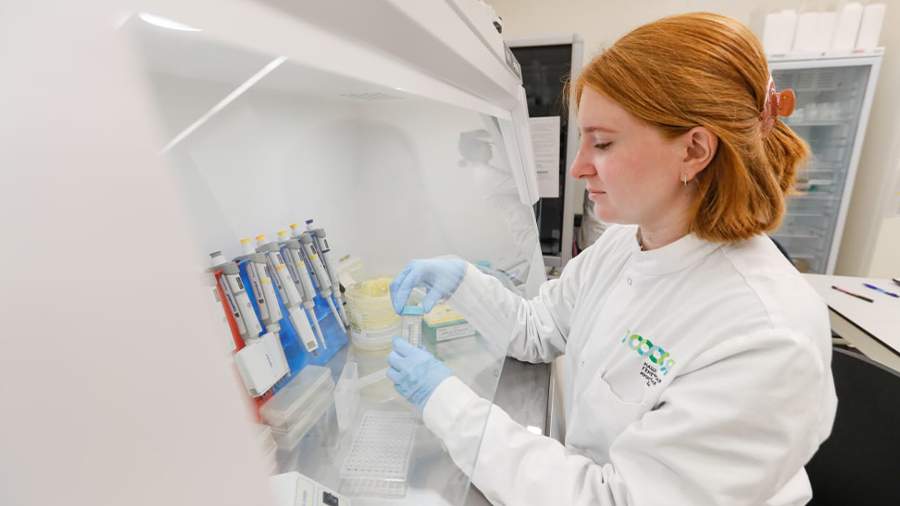Russia has the largest database of genomes

As part of the 100,000+Ya genetic initiative, Russia's largest database of genomes has been compiled. The organizer of the project is the Center for Genome—wide Sequencing, LLC Biotechnological Campus. The implementation takes place within the framework of the Federal Scientific and Technical Program for the Development of Genetic Technologies, of which Rosneft is the main technology partner.
According to the press service of the oil company, the main objective of the initiative is to systematize the genomes of Russian residents in order to identify hereditary predisposition to severe diseases. The total number of samples exceeded 100 thousand units, of which more than 80 thousand. They have already been decrypted. The complete processing of the collected genomes will be completed by the end of the year.
At the current stage of research, scientists have identified the genetic causes of diseases in more than 10,000 patients. Bioinformatic analysis revealed thousands of unique genetic variants associated with 500 different rare (orphan) diseases.
In addition, based on the analysis of more than 50,000 genomes of volunteers, reference data on the genetic diversity of the Russian population has been formed — the so-called genomic landscape. These data will become the starting point for further work, which scientists will be able to rely on to identify new patterns in human DNA.
Additionally, samples of over 5,000 representatives of various ethnic groups were analyzed. The scientists plan to estimate the frequency of genetic variants leading to severe genetic diseases in certain regions. The results will form the basis of genetic screening programs for healthy family planning and the prevention of hereditary pathologies.
In an interview with Vedomosti, Konstantin Severinov, scientific director of the national genetic initiative, said that the project staff had already made the first discoveries: for example, they were able to find a disease not previously registered in the country — Rogers syndrome. It often leads to very serious consequences, including death at an early age. Several hundred cases of this disease have been reported worldwide. None were known in Russia.
"In cooperation with the Center for Pediatric Hematology, Oncology and Immunology named after According to Dmitry Rogachev, we were able to identify 10 cases of this syndrome. Almost all such works are investigations in the spirit of Sherlock Holmes, which require teamwork and cooperation. At first, a pathogenic genetic variant was found in the genomes of the patients, then the geneticist at the Rogachev Center guessed from the surnames that in all cases we are talking about Ingush people who are not close relatives. It turned out to be a strange situation: the disease is very rare, and we have 10 cases, and all of them are Ingush. As Winnie-the-Pooh used to say, "it's not for nothing," Severinov noted.
As a result, it turned out that Ingush people have a high frequency of carrying the genetic variant of Rogers syndrome, which explains the appearance of sick Ingush children. Now it is possible to organize genetic testing of couples planning to become parents, the scientific director of the project added.
Rosneft supports the development of the scientific and educational part of the initiative. Together with the company, master's degree programs in genetics have been developed and launched at Moscow State University and MIPT.: "Genomics and Human Health" and "Algorithmic Biology". In the course of their studies, students of the programs undergo practical training at the sites of the Center for Genome-wide Sequencing.
Переведено сервисом «Яндекс Переводчик»
